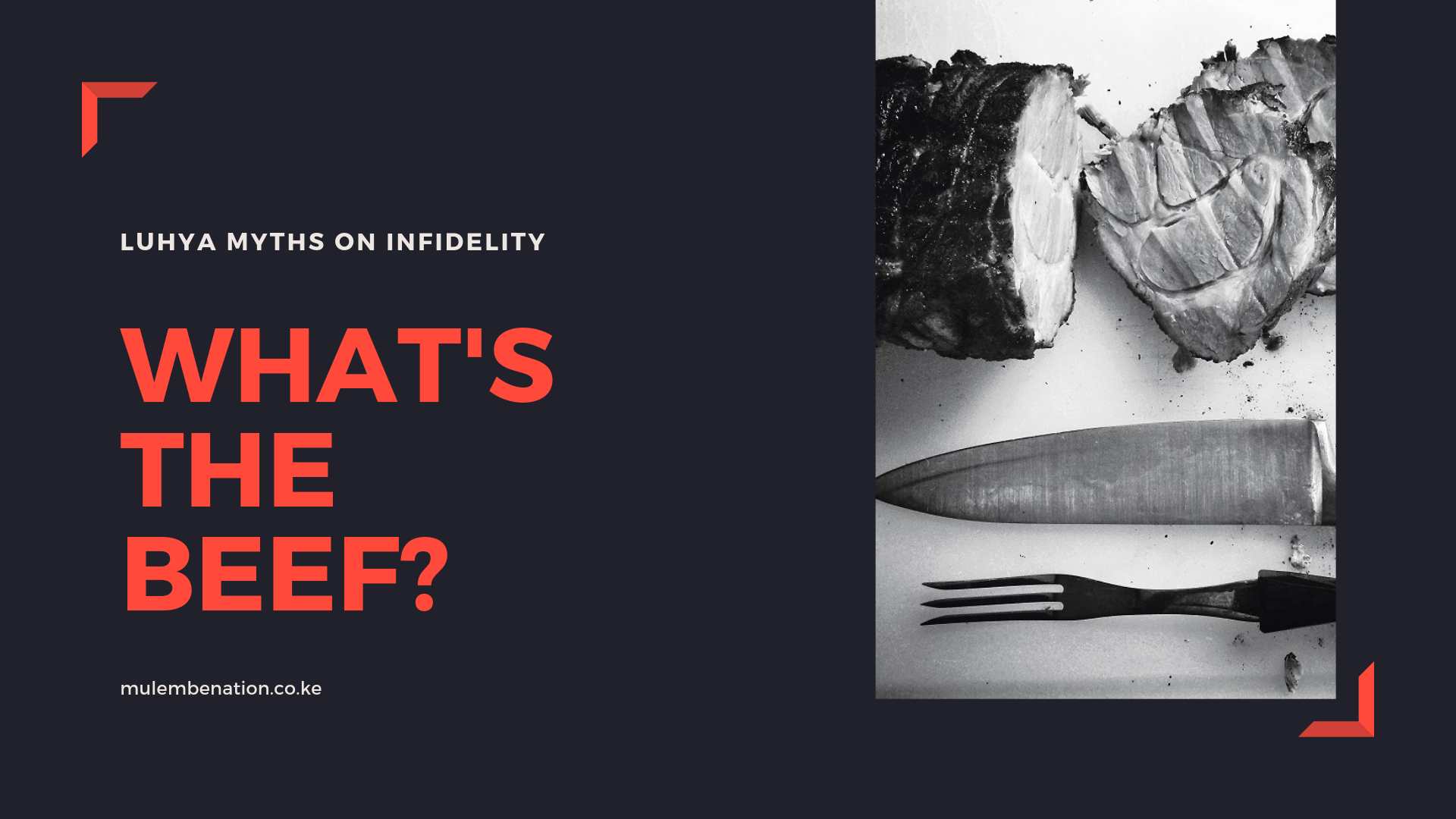Meat in luhya culture, like in many African cultures, holds special cultural value. For example, luhya brothers are forbidden from sharing emondo . (The Maragoli and not Batsotso meaning of the word, thus chicken gizzard.) Sharing emondo would result in lifelong animosity between the two. This curse could easily trickle down generations resulting in brothers fighting for ages, whilst not even knowing where it all started. Therefore, the emondo is reserved for the patriarch whenever a chicken is slaughtered. It gets even more interesting when it comes to meat and luhya myths on infidelity. Read on
The general rule of meat and luhya myths on infidelity is that your husband and lover should never share. Even if figuratively speaking, they are eating form the same pot, they literally shouldn’t eat from the same pot. Got that? Now on to the specifics.
First Up On Other Meats and Luhya Myths On Infidelity: Engoko
By now, you should be knowing why we talk of ‘other meats’. This series on luhya culture focusing on luhya myths about infidelity has adopted the cheeky euphemism ‘eating rats‘. Eating chimbeba is how it’s said in lubukusu; and it refers to when a married woman cheats. You also ought to be knowing why we started out with luyha’s favorite protein: engokho. In mulembe, chicken is the emperor of meats.
Why Chicken?
I used to love it whenever mum went visiting at her parents. That meant three things. First, we’d have chicken for lunch or dinner depending on the duration of stay. Secondly, we’d be given an itaywa (jogoo, cockerel) that mum would be instructed to slaughter for my dad whenever we got home. Finally, I’d be given a young hen to go raise for eggs and meat.
Chicken here was used to symbolize the strength between a son in law and his wife’s family. By my mum carrying back chicken to her matrimonial home, she communicated greetings. The chicken symbolized that all was well between the two families. She also affirmed that the dowry that my dad had paid for her continued to bring wealth to her relations. In Kenyan speak, we call it “kurudisha mkono” – reciprocating goodwill.
So What Are The Rules?
Never slaughter a chicken for your husband and your ‘rat’ to share.
This warning falls particularly for women who love to keep it in the family. Those who have people who call each other brother, cousin, son, uncle or father eating from the same pot. The temptation here is to whip up some chicken as it is customarily whenever we have important visitors over. Woman, you have to be smart about it. Have them enjoy another luhya delicacy like muduya and let them carry the chicken home for slaughter.
Never invite or find yourself in a situation where your husband and rat share a platter of chicken.
Avoid those kuku joints where they serve the bird on a platter for all involved to dig in. If you must, insist on food joints that serve ala carte or buffet.
The best strategy of course is not to have your hubby and ‘rat’ be friends.
The two or more men feeding from your pot not being friends hugely negates any of the above scenarios. If by some witchcraft it happens that the three of you share a table somewhere, unplanned for situations are unlikely to unfold due to the absence of camaraderie. For instance, consider situations where individuals in a group agree to order different things from a menu. The end game here being that each one of them shares what they ordered, so that everyone to have a taste of everything.
Read
Meat and Luhya Myths on Infidelity: What’s The Worse That Could Happen?
Death. And in case you take this outcome of disregarding the stipulations on meat and luhya myths on infidelity as a cunning way to get away with doing away with your husband, your ‘rat’ isn’t safe either.
The rules are as follows: whomever initiates the sharing is spared. So if during a night out your husband orders for a plate of samosas or mutura to wash down the beer and invites your chimbeba to dig in, chances are you soon will be mourning among the banana plantations. (Read: luhya myths on infidelity when divorced or separated to find out why).
An uncle once advised me to invite so and so whom I suspect to be moving with my woman, first I ensure I befriend him. Then, as a celebration of our ‘friendship’ I should invite him for a meal. Then I initiate the sharing of the meat. He warned that the ancestors will take care of the rest and I will have my revenge. Needless to mention, I am yet to pick up on his advice.
Other Stipulations On Meat And Luhya Myths On Infidelity
For everything we’ve said about chicken and luhya myths on infidelity, substitue with any protein of your choice. Then note the following too.
- If given money by your ‘chimbeba’, don’t use it to shop meat for the family. Especially if you know your husband will partake of the meal.
- Do not go cheating (this rule applies to both men and women) and come back home to the children – carrying them, feeding them on proceeds of your transgressions. Especially when the children are infants. For more on why you shouldn’t, read part 10 of this series on luhya myths on infidelity where children are involved.

